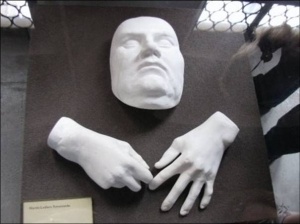In the eventful sixteenth century, few people took notice of a court trial in a small town on the Italian side of the Alps. And yet, the stakes were high. It all started on May 1, 1595, when Simone Cabasso, parish priest . . . Continue reading →
Calvin and Luther
Calvin: Paul Distinguishes Between Law And Gospel
Hence, also, we see the error of those who, in comparing the Law with the Gospel, represent it merely as a comparison between the merit of works, and the gratuitous imputation of righteousness. This is indeed a contrast not at all to . . . Continue reading →
Confessional Protestantism Is Evangelical But Distinct From Evangelicalism
Both Bob and I wrote the book as catholic Christians—those who hold to the creeds of the ancient church—and as evangelical Christians—those who believe in justification by grace through faith and identify with ecclesiastical bodies which subscribe to Reformation confessions. To use . . . Continue reading →
Calvin’s Debt To Luther
On the other hand, a glance at the first edition of Calvin’s Institutes, already published in 1536, is sufficient to prove that he was deeply indebted to Luther, and this, no doubt promised better things. Quite apart from the fact, often pointed . . . Continue reading →
Calvin: The Lutherans Belong To The Church And We Are Their Members
It cannot be too strongly emphasized at the outset that Calvin did not think of himself as “Reformed” in the sense of inner-Protestant polemics. Calvin was not a Calvinist but an Evangelical, and what he thought about Luther can only be understood . . . Continue reading →
Calvin: Reformed Churches and Ministry Founded on Luther
We maintain to start with that, when God raised up Luther and others, who held forth a torch to light us into the way of salvation on on whose ministry our churches are founded and built, those heads of doctrine in which . . . Continue reading →
Was Calvin A Lutheran?
By this answer Christ declared that he did not deliver any other rule of life than that which had formerly been delivered in the law of the Lord. Thus he both bore testimony to the divine law, that it was a doctrine . . . Continue reading →
Useful Myths And Reformed Identity Markers
The Oxford English Dictionary (OED) first provides multiple definitions of the word “myth.” The first says, “A traditional story, typically involving supernatural beings or forces, which embodies and provides an explanation, aetiology, or justification for something such as the early history of . . . Continue reading →
On Calvin’s Birthday: The Biography Channel Is Wrong (Updated)
Today is John Calvin’s birthday. He was born in 1509, in Noyon. In his honor let us watch a video and discuss it. [Editor’s Note: In 2013 someone posted a video featuring the American church historian Martin Marty discussing John Calvin. That . . . Continue reading →
Resources on Understanding the Differences Between the Lutheran and Reformed Traditions
A friend posted something on Twitter this AM that reminded me how little the two traditions understand each other today. In the 16th and 17th centuries our traditions were involved in intense, frequent discussions and interaction and we understood each other more . . . Continue reading →
Calvin: Our Churches and Ministry Founded on Luther
We maintain to start with that, when God raised up Luther and others, who held forth a torch to light us into the way of salvation on on whose ministry our churches are founded and built, those heads of doctrine in which . . . Continue reading →


